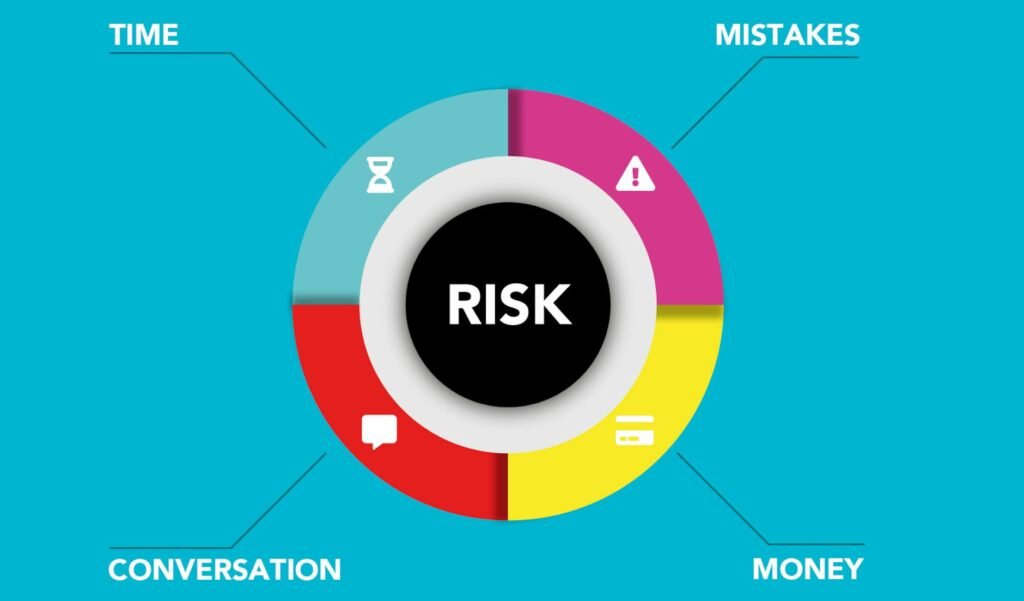
Are you unknowingly sabotaging your financial future? 💸 As we journey through life, our financial needs and challenges evolve, but one thing remains constant: the potential for costly mistakes. Whether you’re a fresh-faced graduate in your 20s, a career-driven professional in your 30s, or a family-focused individual in your 40s, financial pitfalls lurk around every corner.
Imagine waking up one day to realize you’ve missed out on years of compound interest, or finding yourself knee-deep in debt just as you’re about to start a family. These scenarios are all too common, but they don’t have to be your story. By understanding the unique financial traps of each life stage, you can safeguard your future and set yourself up for long-term success. 🚀
In this eye-opening blog post, we’ll explore the top financial mistakes to avoid in your 20s, 30s, and 40s. We’ll dive into age-specific blunders, uncover common errors that span generations, and arm you with powerful strategies for financial triumph. Get ready to transform your financial journey and pave the way for a secure, prosperous future!
Table of Contents

Financial Mistakes in Your 20s
Your twenties are a crucial time for building a strong financial foundation. However, many young adults make common mistakes that can have long-lasting consequences. Let’s explore the key financial pitfalls to avoid during this pivotal decade.
A. Neglecting to start saving early
One of the biggest financial mistakes in your 20s is failing to prioritize savings. Many young adults believe they have plenty of time to save later, but this mindset can be costly. Here’s why starting early is crucial:
- Compound interest works in your favor
- More time to recover from market fluctuations
- Develop good financial habits early
B. Accumulating credit card debt
Credit card debt can quickly spiral out of control, leading to financial stress and damaged credit scores. To avoid this mistake:
- Use credit cards responsibly
- Pay off balances in full each month
- Avoid unnecessary purchases
- Consider a balance transfer card for existing debt
C. Failing to build an emergency fund
An emergency fund is essential for financial stability. Without one, unexpected expenses can lead to debt or financial setbacks. Here’s a simple guide to building your emergency fund:
| Savings Goal | Timeframe | Monthly Contribution |
|---|---|---|
| $1,000 | 6 months | $167 |
| $5,000 | 1 year | $417 |
| $10,000 | 2 years | $417 |
D. Ignoring the power of compound interest
Compound interest can be your best friend or worst enemy, depending on how you use it. In your 20s, it’s crucial to:
- Start investing early, even with small amounts
- Take advantage of employer-sponsored retirement plans
- Consider low-cost index funds for long-term growth
By avoiding these financial mistakes in your 20s, you’ll set yourself up for greater financial success in the future. As we move into the next decade, we’ll explore the unique challenges and opportunities that come with managing money in your 30s.

Money Missteps in Your 30s
As you enter your 30s, financial responsibilities often increase, making it crucial to avoid common money missteps. Let’s explore the key areas where people in their 30s often falter financially.
A. Failing to create a will or estate plan
Many people in their 30s overlook the importance of estate planning, thinking it’s only for the wealthy or elderly. However, creating a will is essential for:
- Protecting your assets
- Ensuring your wishes are carried out
- Providing for your dependents
Don’t procrastinate on this vital financial task.
B. Neglecting insurance coverage
Adequate insurance is crucial for financial security. Consider the following types:
| Insurance Type | Why It’s Important |
|---|---|
| Life Insurance | Protects your family’s financial future |
| Disability Insurance | Safeguards your income if you’re unable to work |
| Health Insurance | Covers medical expenses and prevents debt |
C. Not diversifying investments
Putting all your eggs in one basket is a common financial mistake. Diversification helps:
- Reduce risk
- Maximize potential returns
- Balance your portfolio
Consider a mix of stocks, bonds, real estate, and other assets appropriate for your risk tolerance and goals.
D. Putting off retirement savings
Your 30s are prime years for building retirement savings. Delaying can cost you significantly due to:
- Lost compound interest
- Reduced time for market recovery
- Increased financial stress later in life
Aim to maximize contributions to your 401(k) or IRA, taking advantage of any employer matching.
E. Overspending on a home
While homeownership is a common goal, overspending can lead to financial strain. Be mindful of:
- Buying more house than you can afford
- Underestimating additional costs (property taxes, maintenance, etc.)
- Neglecting to shop around for the best mortgage rates
Now that we’ve covered these crucial money missteps in your 30s, let’s explore the financial pitfalls that await in your 40s.

Financial Pitfalls in Your 40s
As we enter our 40s, financial decisions become increasingly critical. Building on the lessons learned in our 20s and 30s, it’s crucial to avoid these common pitfalls that can derail your financial future.
A. Not maximizing retirement contributions
In your 40s, retirement is no longer a distant concept. Failing to maximize your retirement contributions can significantly impact your financial security in later years. Consider the following:
- Increase your 401(k) contributions to the maximum allowed
- Take advantage of catch-up contributions if you’re 50 or older
- Explore additional retirement savings vehicles like IRAs
| Retirement Account | 2023 Contribution Limit | Catch-up Contribution (50+) |
|---|---|---|
| 401(k) | $22,500 | $7,500 |
| IRA | $6,500 | $1,000 |
B. Failing to reassess career goals
Your 40s are an ideal time to reassess your career trajectory. Neglecting this can lead to missed opportunities for higher earnings and job satisfaction. Take these steps:
- Evaluate your current job satisfaction and earning potential
- Identify skills gaps and pursue relevant training or education
- Consider career pivots or advancement opportunities within your field
C. Carrying high-interest debt
High-interest debt can be a significant drain on your finances. Prioritize paying off:
- Credit card balances
- Personal loans
- Any other high-interest debt
Consider debt consolidation or balance transfer options to reduce interest rates and accelerate repayment.
D. Prioritizing children’s education over retirement
While supporting your children’s education is important, it shouldn’t come at the expense of your retirement savings. Remember:
- You can borrow for education, but not for retirement
- Set realistic expectations with your children about college costs
- Explore scholarships, grants, and work-study programs
Balancing these priorities ensures both your children’s future and your financial security in retirement.
Now that we’ve covered the financial pitfalls specific to your 40s, let’s examine some common mistakes that can affect individuals across all age groups.

Common Mistakes Across All Age Groups
Regardless of your age, certain financial missteps can derail your financial well-being. Here are four common mistakes that people tend to make across all age groups:
A. Ignoring the importance of financial education
Financial literacy is crucial for making informed decisions about your money. Unfortunately, many people overlook this vital aspect of personal development. To avoid this mistake:
- Invest time in reading financial books and articles
- Attend workshops or webinars on personal finance
- Follow reputable financial experts on social media
- Consider taking online courses on financial management
B. Failing to invest in personal development
Personal growth isn’t just about finances; it’s about enhancing your overall value. Neglecting personal development can limit your earning potential and career opportunities. Here’s how to prioritize it:
- Set aside a budget for learning and skill development
- Pursue certifications or advanced degrees in your field
- Attend industry conferences and networking events
- Seek mentorship opportunities
C. Not creating and sticking to a budget
A budget is the foundation of financial health, yet many people fail to create or adhere to one. Here’s a simple budgeting framework to get started:
| Category | Percentage of Income |
|---|---|
| Needs | 50% |
| Wants | 30% |
| Savings | 20% |
D. Living beyond your means
This common financial mistake can lead to debt accumulation and financial stress. To avoid living beyond your means:
- Track your expenses meticulously
- Differentiate between needs and wants
- Avoid lifestyle inflation as your income increases
- Consider the long-term consequences of major purchases
By addressing these common financial mistakes, you can set yourself up for financial success regardless of your age. Next, we’ll explore specific strategies to help you achieve your financial goals and secure your financial future.

Strategies for Financial Success
Now that we’ve explored common financial pitfalls across different age groups, let’s focus on strategies to ensure your financial success. By implementing these approaches, you can avoid many of the mistakes we’ve discussed and build a strong financial foundation.
Seeking professional financial advice when needed
Don’t hesitate to consult experts when navigating complex financial decisions. Professional advisors can offer valuable insights tailored to your unique situation.
- When to seek advice:
- Major life changes (marriage, divorce, children)
- Career transitions
- Inheritance or windfall
- Complex tax situations
Regularly reviewing and adjusting financial plans
Your financial needs and goals evolve over time. Regular reviews ensure your strategy remains aligned with your current circumstances.
| Review Frequency | Focus Areas |
|---|---|
| Monthly | Budget, expenses |
| Quarterly | Investment performance |
| Annually | Overall financial plan, insurance coverage |
Automating savings and investments
Automation takes the guesswork out of saving and investing, making it easier to stay on track with your financial goals.
Benefits of automation:
- Consistent contributions
- Reduced impulse spending
- Takes advantage of dollar-cost averaging
Setting clear financial goals
Specific, measurable goals provide direction and motivation for your financial journey.
- Short-term goals (1-3 years)
- Medium-term goals (3-10 years)
- Long-term goals (10+ years)
Remember to make your goals SMART: Specific, Measurable, Achievable, Relevant, and Time-bound.
By implementing these strategies, you’ll be better equipped to navigate the financial challenges of each decade and build a secure financial future. In the next section, we’ll explore how to adapt these strategies as you progress through different life stages.

Navigating your financial journey through different life stages can be challenging, but being aware of common pitfalls can set you on the path to success. Whether you’re in your 20s and just starting out, in your 30s and balancing new responsibilities, or in your 40s and focusing on long-term security, it’s crucial to avoid financial missteps that can derail your goals.
By implementing sound financial strategies and learning from the mistakes of others, you can build a strong foundation for your future. Remember, it’s never too early or too late to take control of your finances. Start today by addressing any areas where you may be falling short, and commit to making informed decisions that will benefit you for years to come. Your financial well-being is in your hands – make it a priority at every stage of life.
Q: What are some of the most common financial mistakes people make in their 20s?
In your 20s, some common mistakes include overspending on lifestyle expenses, not saving enough, ignoring student loan payments, relying too much on credit cards, and failing to start investing early. Many also make the mistake of not budgeting or creating an emergency fund, which can lead to financial stress.
Is it a bad idea to delay investing until your 30s?
Yes, delaying investing can significantly impact your long-term wealth. In your 20s, you have the advantage of time and compound interest, which can help grow your wealth more effectively. Even small amounts invested early can lead to substantial gains over decades.
How important is building an emergency fund in your 20s and 30s?
Building an emergency fund is critical in both decades. In your 20s, it protects you from unexpected expenses (like medical bills or car repairs), and in your 30s, it becomes even more important as life responsibilities increase, such as family costs or homeownership. Experts recommend saving 3-6 months of living expenses in an emergency fund